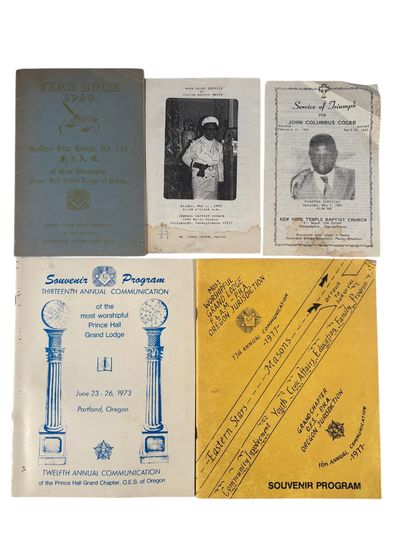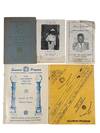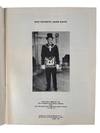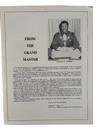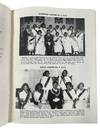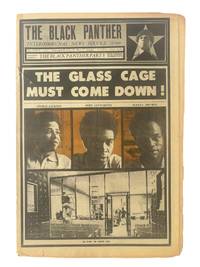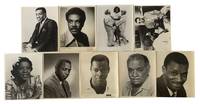by African American, Fraternal Organizations
[African American] [Fraternal Organizations] Archive of 3 pamphlets relating to African American Masonic lodges, primarily the Prince Hall Freemasons, from the 1950s-1970s. Included are 3 programs from the Most Worshipful Prince Hall Grand Lodge of Portland, Oregon from the years 1958, 1973, and 1977. Scarce, with no copies found on OCLC at the time of this writing. Measurements range from 8.5" x 11" to 6" x 9". Pages range from 44-73 pages. Staple bound illustrated wrappers. Each program is heavily illustrated with black and white photographs of members of various lodges and of various leadership positions. Together, these materials offer a rare and insightful (truncated)
